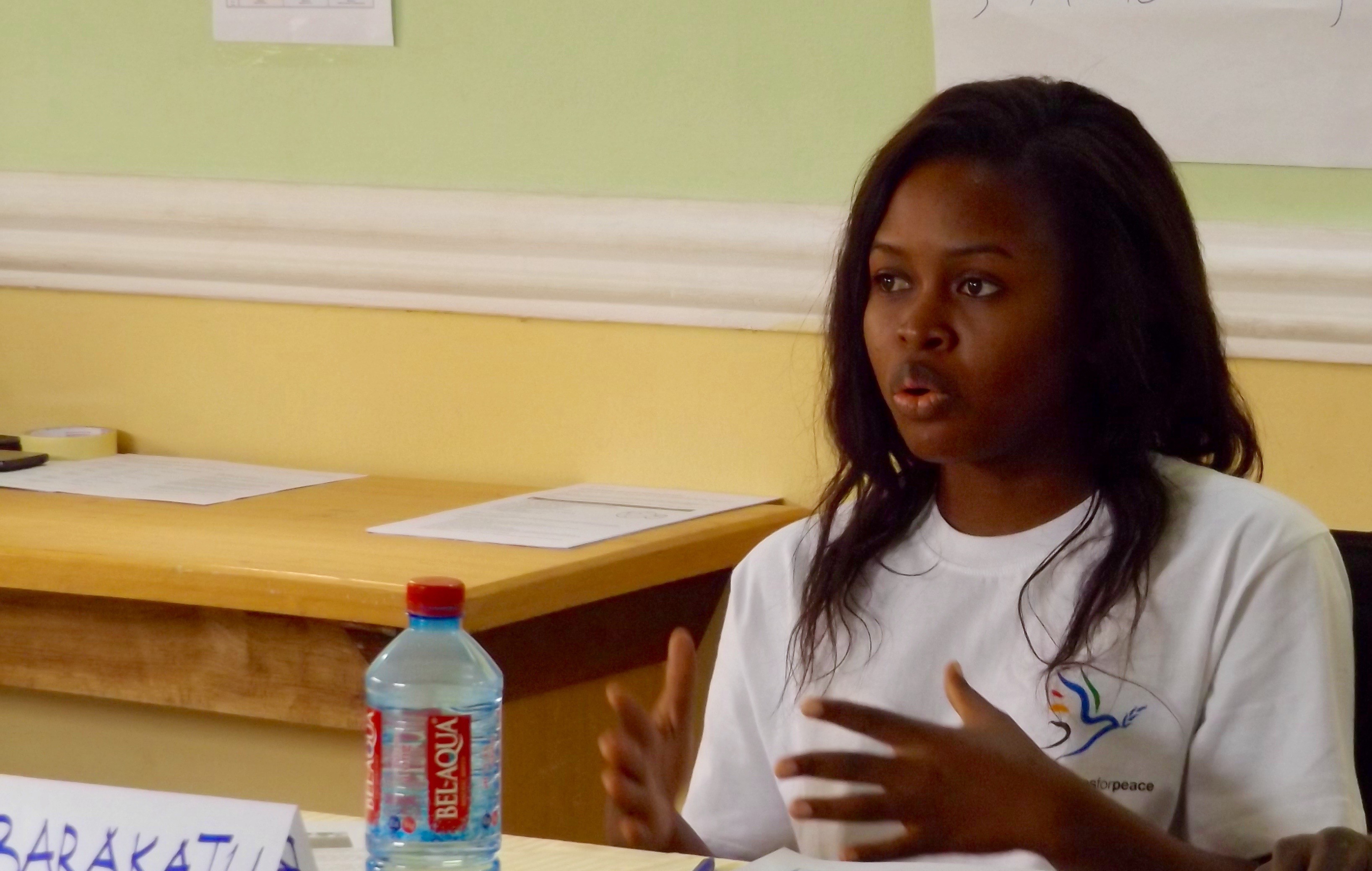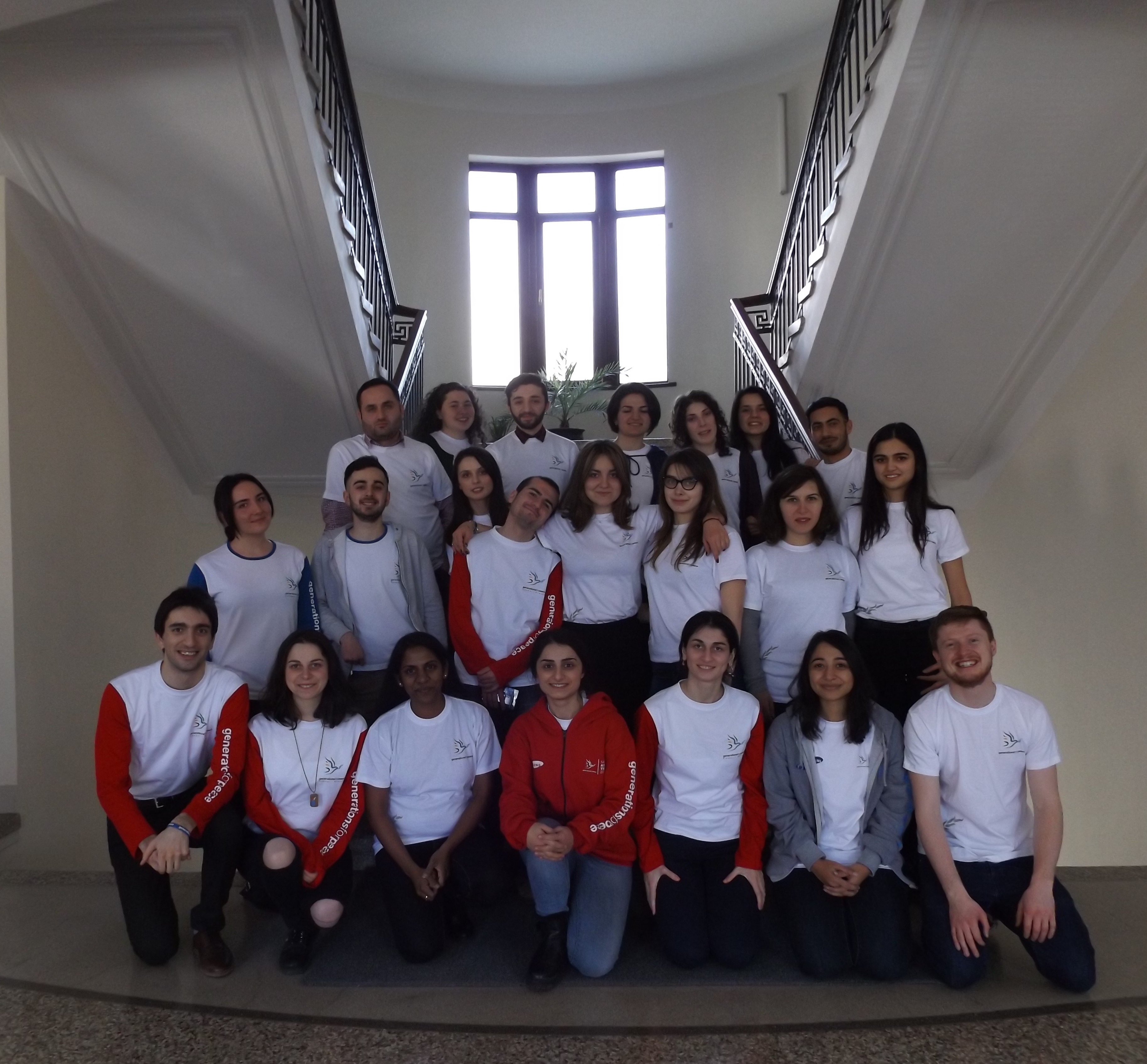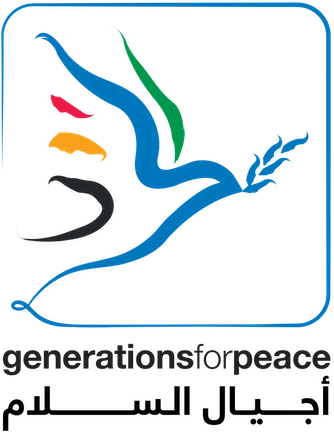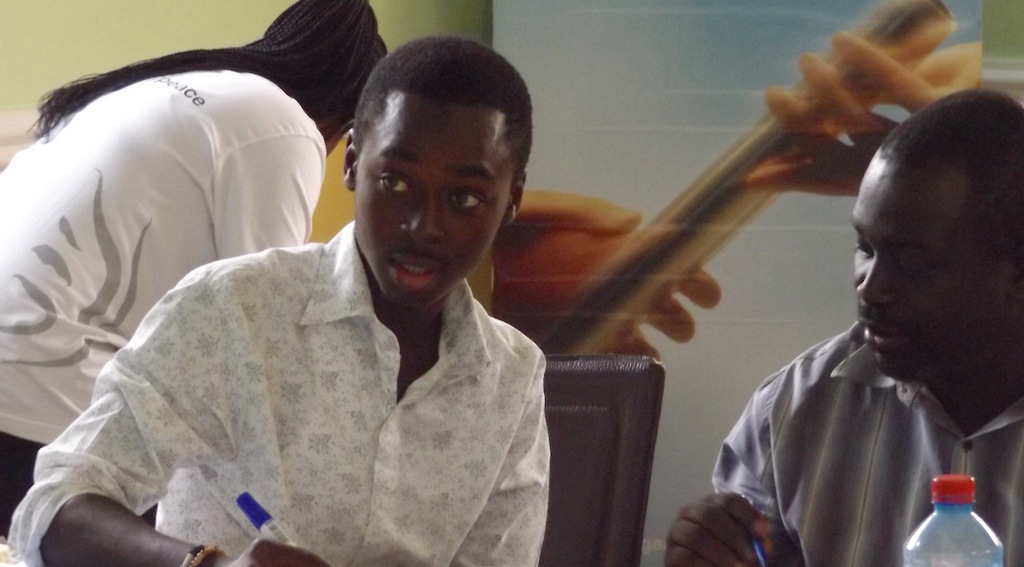By Edward Beswick, Research Coordinator, Generations For Peace Institute
In August 2015, Generations For Peace (GFP) held an international training offering local volunteers from Georgia, Ghana and Macedonia expertise on dialogue, one of the five GFP vehicles for peace building. GFP’s Dialogue For Peace Programme (DPP) involves carefully facilitated dialogue sessions with older youth and adults from different sides of the conflict divide, to deepen their own understanding of each other, support empowerment shifts, and help transform existing conflict in their communities. Following the August 2015 training, GFP volunteers are piloting DPPs in Georgia, Ghana and Macedonia – three countries where we have well-established activities. Here at GFP headquarters (HQ), we are going to be supporting and following our volunteers as they design and implement these programmes, learning with them as they go! With three DPPs commencing, Generations For Peace Institute (GFPI) has decided to compliment the programming with research. Dialogue is as new to us as it is to our volunteers, and it is really important for us to gain a deeper understanding of how the approach works in practice. This blog post is the first in a series that will follow this research and our volunteers’ experience of using dialogue as a peace-building tool. To begin the series, it is important to explain exactly what dialogue is, how it can be used as a basis for a programme, and what approach GFP will be using. Of course, most readers will have heard of dialogue, but what it means in practice is less widely understood.
Dialogue can take many different forms and there is no universal framework for all dialogues to follow. Simply put, a dialogue is the meeting of people for the purpose of learning from one another with the aim of raising self-awareness, people’s awareness of others and the situation that they are in. At GFP, we chose to pilot the Transformative Dialogue approach, as it matches our mandate of participatory, volunteer-led programming. This approach sees conflict as arising from a crisis in human interaction. In other words, the people and groups involved in conflict situations relate to each other in hostile, aggressive, and prejudicial ways, which can lead to violence. Transformative Dialogue gives people the opportunity to talk about issues they consider important, using words of their own choosing. It aims to increase participants’ understanding of the conflict, their ability to respond to it positively, and interact with the others involved constructively.[1] This dialogue can take place within a group (intra-group) or between two or more groups (inter-group) involved in conflict. What really sets Transformative Dialogue apart from other approaches is that it is participant-led and non-directive. It is the participants themselves who pick the topic of conversation and who ultimately decide which direction the dialogue programme will go in. This party-driven approach to dialogue provides people caught up in a conflict with a space and a chance to speak and be heard; but, it is up to the participants to decide what to do with that opportunity.
Clearly, dialogue has the potential to benefit communities divided by conflict. But, the question remains, how, in practice, does one go about organising a programme like this? Who decides who should be involved, how does one agree when and where to hold the dialogue sessions? Where do the participants – who are in control of the programme’s direction – take the programme and what change does it lead to? This is where GFPI’s research comes in; it aims to find out what happens in a programme when the participants are in charge. We will do so by following our three pilot programmes in Georgia, Ghana and Macedonia. The few existing pieces of literature written about other dialogue programmes deal mostly with impact and say very little about the steps followed to achieve that impact.[2] We think that studying the processes followed by our pilot programmes, that are trying out a new, non-directive approach, will allow us to understand how change occurs, rather than just finding out what happened after the programme concludes. Dialogue is widely used in peace building but rarely researched.[3] We at GFPI want to change that situation by investigating an approach that we think has the potential to be an incredibly powerful peace-building tool.

GFP volunteer at a Dialogue For Peace Training in Ghana
So, what exactly are we going to do? The research already began back in August 2015 when we initially trained selected GFP volunteers in the approach. After the training, they were surveyed on what they thought of the approach and how it might be applicable to their contexts. In the survey, 80% of respondents said that the approach’s non-directive nature was a key strength, while 52% said it was also a weakness; in terms of what problems they anticipated, the top answers were an inability to plan, an uncertainty over programme duration, and the unpredictability of a participant-led process.[4] From the results, it was clear that the non-directive nature of the approach dominated the trainees thoughts – as both a challenge and opportunity. Now, seven months later, those volunteers have held their own local training with other GFP volunteers who will be able to help them carry out their dialogue programmes. In the last few months, the volunteers have been busy planning, and we want to gain a better understanding of how that has unfolded. So, to kick-off the research and support initial programme preparations, GFP HQ staff travelled to the three countries. Each volunteer was interviewed and each trainee surveyed to find out what has happened and what still needs to happen before programme activities can begin. The findings showed that each group in each country has come a long way since the August 2015 training: they have each decided on a conflict; a programme location and a broad group they want to target; they have recruited and trained people to help them with their programmes; and held conversations with officials; but those concerns raised last August are still present and the direction the participants will take these programmes in remains to be seen. These field visits were the first of several that will be undertaken by HQ staff following these pilot programmes as they run their course, documenting progress over time and gradually discovering how Dialogue For Peace works in practice.
The research will allow HQ to understand the processes behind a Dialogue For Peace programme and how they unfold in three diverse places. We will be able to see what challenges arise and what best practices emerge. Based on this information, we can then decide what needs to change and whether Dialogue For Peace based on Transformative Dialogue is the right approach for us and our volunteers. Studying pilot programmes in three different contexts will take us down three distinct trajectories. Each one shaped by its context, and what is and is not possible within it. From this, we can find out where the approach works and where it does not. All of these findings will allow us to learn as an organisation and make informed decisions that bring the most gains to us, our volunteers and our programme beneficiaries.
But, the research also presents some difficulties. Studying a process over time in different places is not going to be easy. For a start, we do not know where these pilot programmes will lead, which makes it difficult to think ahead. At the moment we have a research plan, but it is likely that this will change as each pilot follows its unique route shaped by the contexts in which Dialogue For Peace Programmes take place. As the programme processes unfold they will encounter different issues and take different lengths of time, meaning our ability to directly compare across cases will be a challenge. But this unpredictability and diversity is also what makes the research so useful and its subject matter so rich. We have a new, innovative approach that we have trained our volunteers in, now it is time to see how it works in three different communities, addressing three different conflicts, on three different continents.

GFP HQ staff with volunteers at a Dialogue For Peace Training in Georgia
At GFP, using Dialogue For Peace expands our peace-building curriculum and brings a new approach to situations of intractable conflict where we have had programmes for many years. We believe dialogue has the potential to bring about real change, improving relationships and strengthening people’s capacity to deal with the conflict that they are facing. But, the Transformative Dialogue approach, which we are using in our programmes, is still largely untested. We at GFP are a learning organisation and research is vital to the work that we do; it makes us accountable, adaptable and allows us to improve. To coincide with these pilot programmes, which are taking place in Georgia, Ghana and Macedonia, we will be carrying out research that will follow our volunteers, learning form them as they enact their dialogue programmes. Through this and together with our volunteers, we can identify challenges, successes, and areas where change is needed.
[1] Generations For Peace, Dialogue For Peace Module, (2015).
[2] A Dessel, ‘Evaluation of Intergroup Dialogue: Empirical Literature Review’, 200.
[3] Ibid.
[4] GFP, Dialogue For Peace Post Training Survey: Report, (Amman, 2015).
_______
Sign up to our e-newsletter to learn more about the impact of our programmes in the Middle East, Africa, Asia and Europe.


